Bipolar II Disorder (Bipolar 2 or BP-II) is a mood disorder. Bipolar disorder affects approximately 4.4% of the U.S. adult population.
It's characterized by cycling episodes of depression and hypomania, a less severe form of mania. This means that individuals with Bipolar II Disorder experience periods of intense sadness and low energy, as well as periods of elevated mood and increased activity.
Knowing what Bipolar II Disorder is and how it affects individuals is important for understanding the challenges and experiences of those living with it. Fortunately, treatment options are available to help manage symptoms and improve overall quality of life.
Key Features:
Individuals with Bipolar II experience depressive symptoms ranging from sadness and low energy to more severe symptoms like hopelessness and suicidal thoughts.
Bipolar II disorder often begins in late adolescence or early adulthood and is a chronic condition.
Diagnosis is based on specific criteria outlined in the Diagnostic and Statistical Manual of Mental Disorders (DSM-5).
Psychotherapy, such as cognitive-behavioral therapy (CBT), can assist individuals in managing their symptoms and improving their quality of life.
Lifestyle modifications, like maintaining a regular sleep schedule, can be crucial in managing the disorder and reducing the frequency of mood episodes.
What Is Bipolar 2 Disorder?
Bipolar II Disorder is a mental health condition that falls under the category of Bipolar Disorders in the Diagnostic and Statistical Manual of Mental Disorders, Fifth Edition (DSM-5). Healthcare professionals use this manual to diagnose mental health conditions and provide criteria for each disorder.
According to the DSM-5, Bipolar II Disorder is a pattern of depressive and hypomanic episodes that are distinct from each other.
Bipolar II Disorder has been recognized for many years, with the earliest documented cases dating back to the 19th century. However, it wasn't until the release of the DSM-III in 1980 that it was officially classified as a separate disorder from Bipolar I.
What Differentiates Bipolar 2 Disorder from Other Forms of Bipolar Disorder?
Although both have the term Bipolar in their names, Bipolar II Disorder is distinct from Bipolar I Disorder in several ways. The main difference is how mania is experienced and other diagnostic criteria for the two types of bipolar disorder.
What Is the Diagnostic Criteria for Bipolar 2?
According to the DSM-5, diagnosing Bipolar II Disorder requires the presence of at least one hypomanic episode and one major depressive episode. Hypomania is a period of elevated or irritable mood lasting at least four days but not as severe as a full-blown manic episode.
Other diagnostic criteria for Bipolar II Disorder include a significant impact on daily functioning, the absence of any other mental health disorder that could better explain the symptoms, and a family history of bipolar or depressive disorders. The symptoms of bipolar disorder tend to present themselves in different intensities from person to person.
How Does Bipolar 2 Differ from Bipolar 1?
One of the key differences between Bipolar II and Bipolar I is the severity of manic episodes. While both disorders involve cycling between depression and mania, individuals with Bipolar II experience hypomania rather than full-blown mania. Hypomanic episodes can still cause significant impairment in daily life, but they are less severe and shorter in duration than manic episodes.
Individuals with Bipolar II may also experience longer and more frequent depressive episodes than those with Bipolar I. This can make it difficult to distinguish between the two disorders since both involve periods of depression.
Get Started With Nuview Treatment Center
Our dedicated professional staff is here to guide you or your loved one on the journey to lasting recovery, offering support every step of the way.
What Are the Core Bipolar 2 Symptoms?
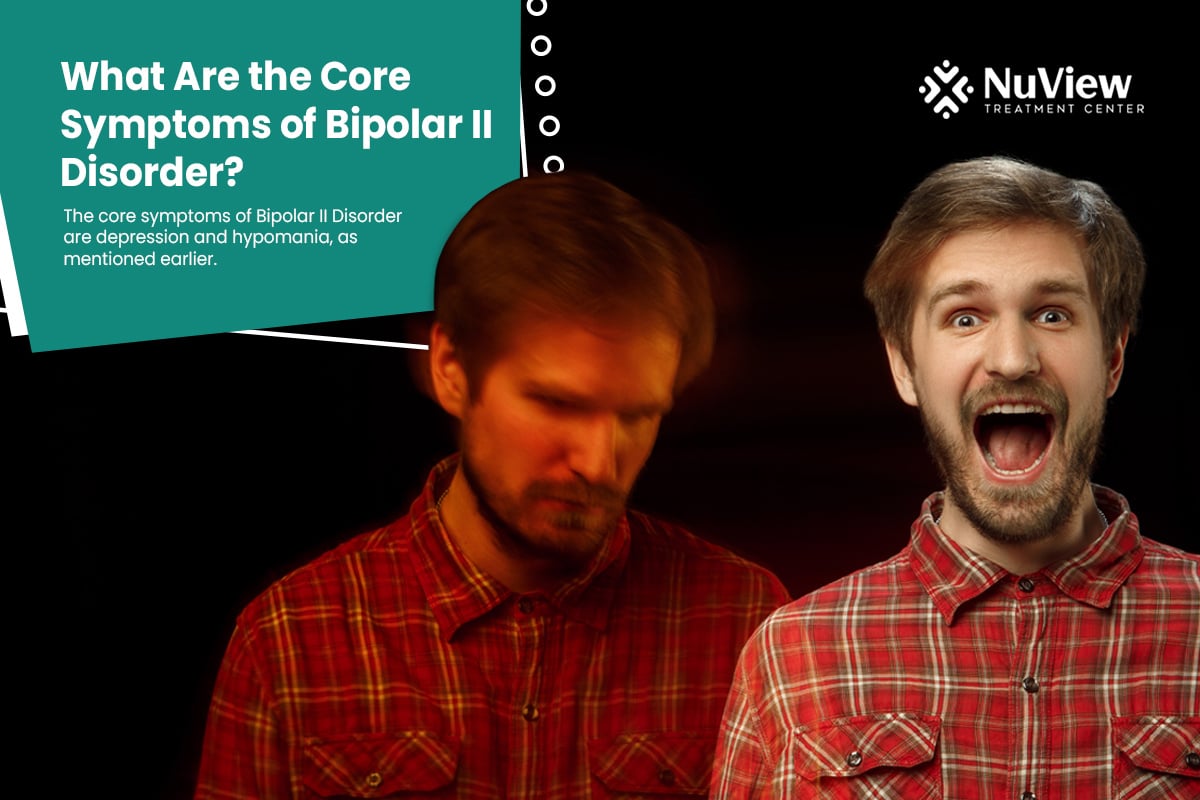
The core symptoms of Bipolar II Disorder are depression and hypomania, as mentioned earlier. Here is a breakdown of these symptoms:
Depressive episodes: feelings of hopelessness, sadness, loss of interest in activities, changes in appetite or sleep patterns, low energy levels, difficulty concentrating
Hypomanic episodes: euphoria or extreme happiness, increased energy and activity levels, racing thoughts, impulsive behavior, decreased need for sleep
Aside from these core symptoms, individuals with Bipolar 2 may also experience other symptoms such as anxiety, irritability, and changes in self-esteem.
There is often the question of whether these symptoms present differently in men than women. While it is known that Bipolar II Disorder may be more common in women, a study found no significant differences between genders when it came to symptom presentation, apart from women experiencing more mania.
What Does a Hypomanic Episode Look Like?
Hypomanic episodes can be difficult to recognize as they often feel like a heightened version of one's usual self or personality. Some of the signs and symptoms of a hypomanic episode may include:
Increased energy and activity levels
Feeling more talkative or sociable than usual
Racing thoughts and difficulty concentrating
Increased impulsivity, risk-taking behavior, and poor decision-making
Decreased need for sleep without feeling tired
Hypomanic episodes are often described as a high that can feel enjoyable at the moment but can also lead to consequences such as financial strain or strained relationships. In the long run, it can develop into Cyclothymic disorder.
How Do Depressive Episodes Manifest in Bipolar II?
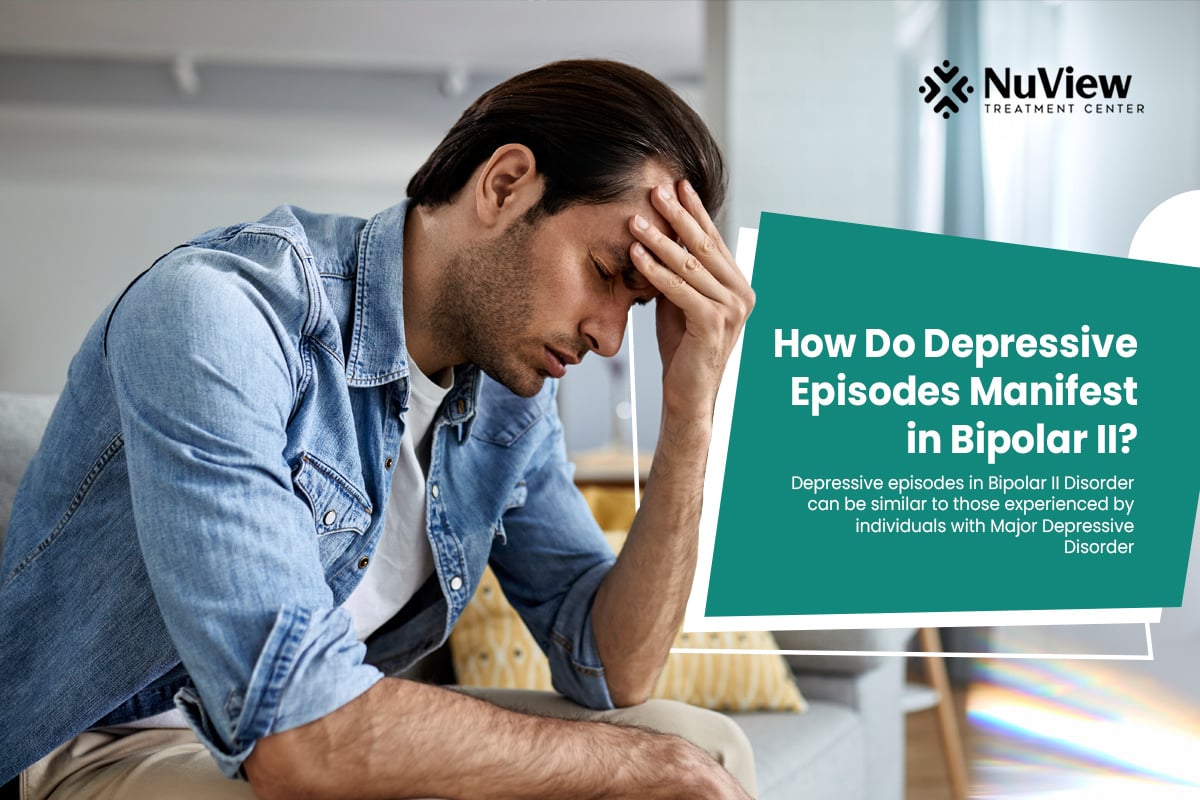
Depressive episodes in Bipolar II Disorder can be similar to those experienced by individuals with Major Depressive Disorder. Some of the common symptoms include:
Persistent feelings of sadness, hopelessness, or emptiness
Loss of interest or pleasure in activities once enjoyed
Changes in appetite and sleep patterns
Difficulty concentrating and making decisions
Low energy levels and fatigue
Thoughts of death or suicide
However, one key difference is that individuals with Bipolar II Disorder may experience a specific type of depression known as atypical depression. This involves symptoms such as increased appetite, weight gain, and oversleeping.
What Causes Bipolar II Disorder?
The exact cause of Bipolar II Disorder is still unknown, but research suggests that a combination of genetic, biological, and environmental factors may play a role. Some risk factors for developing Bipolar II include:
Family history of bipolar or depressive disorders
Abnormalities in brain structure and functioning
Traumatic life events or stressors
Substance abuse
It's also worth noting that no single gene is responsible for Bipolar II Disorder. Instead, multiple genes may interact with environmental factors to increase the likelihood of developing the disorder.
Are Genetics a Contributing Factor?
Genetics plays a significant role in developing Bipolar II Disorder. Data from family, twin, and adoption studies suggest that individuals with a first-degree relative (parent or sibling) with bipolar disorder are at a higher risk of developing the disorder than those without a family history.
Researchers have also identified several genes that may be involved in developing Bipolar II Disorder, including those related to neurotransmitter functioning and circadian rhythms.
How Do Environmental Factors Influence Bipolar II?
Environmental factors such as traumatic life events, chronic stress, and substance abuse have been linked to an increased risk of developing Bipolar II Disorder.
Stressful life events can trigger the onset of bipolar symptoms in individuals genetically predisposed to the disorder. Substance abuse, particularly drugs that affect brain chemistry, can also worsen symptoms or trigger a manic or depressive episode.
What Are the Treatment Options for Bipolar II Disorder?
Bipolar II Disorder is a chronic condition requiring ongoing management and treatment. Treatment typically involves a combination of medication, therapy, and lifestyle changes.
How Effective Are Medications Like Mood Stabilizers?
Mood stabilizers, such as lithium and anticonvulsants, are the primary medications for treating Bipolar II Disorder. These drugs help regulate mood and prevent episodes of mania or depression.
Research has shown that medication can be highly effective in managing symptoms of Bipolar depression.
People with bipolar disorder who receive medication management are more likely to experience depressive symptoms remission than those without medication.
What Role Does Psychotherapy Play in Treatment?
Psychotherapy, or talk therapy, is an essential component of treatment for Bipolar II Disorder. Therapy can help individuals develop coping strategies and learn to manage their symptoms better.
Cognitive-behavioral therapy (CBT) is particularly effective in treating bipolar disorder. CBT focuses on identifying and changing distorted thought patterns and behaviors that may contribute to mood swings.
Therapy can also help individuals with Bipolar II Disorder address any underlying psychological issues that may worsen their symptoms.
How Is Bipolar II Disorder Diagnosed?
Bipolar II Disorder is typically diagnosed by a mental health professional, such as a psychiatrist or psychologist. Diagnosis involves a comprehensive evaluation, including:
A physical exam to rule out any underlying medical conditions
A psychological evaluation to assess mood and behavior patterns
A review of symptoms and family history
It's essential to note that Bipolar II Disorder can be challenging to diagnose as symptoms may overlap with other mental health conditions. It's crucial to seek a professional diagnosis for proper treatment and management.
What Tests and Assessments Are Used?
In addition to a comprehensive evaluation, mental health professionals may use various diagnostic tools and assessments to aid in diagnosing Bipolar II Disorder. These can include:
Mood charts or diaries to track changes in mood and behavior patterns over time
The Mood Disorder Questionnaire (MDQ), a self-assessment tool used to screen for bipolar disorder
The Diagnostic and Statistical Manual of Mental Disorders (DSM-5), a handbook used by mental health professionals to diagnose psychiatric conditions
How Do Healthcare Providers Rule Out Other Conditions?
Healthcare providers will rule out other conditions through a thorough evaluation and review of symptoms. They may also use tests, such as blood work or brain imaging, to rule out any underlying medical conditions causing symptoms.
Bipolar disorder can also be differentiated from other mental health conditions by manic or hypomanic episodes. There exists some confusion between BP II and BPD as both share some features, but BPD does not involve manic episodes.
Get Started With Nuview Treatment Center
What Are the Risks and Complications Associated with Bipolar II Disorder?
A comprehensive cross-sectional study conducted across 11 countries determined that the lifetime prevalence of bipolar spectrum disorders stands at 2.4%.
If left untreated, Bipolar II Disorder can significantly impact an individual's life and lead to various risks and complications. These can include:
Relationship problems or conflicts
Difficulty maintaining employment or academic performance
Self-destructive behaviors, such as substance abuse or self-harm
Increased risk of developing other mental health conditions, such as anxiety disorders or eating disorders
How Does Bipolar II Affect Relationships and Employment?
The unpredictable mood swings associated with Bipolar II Disorder can strain relationships and make it challenging to maintain employment. During depressive episodes, individuals may struggle with low energy and motivation, affecting their ability to work or engage in social activities.
During manic or hypomanic episodes, individuals may engage in impulsive or risky behaviors that negatively impact their relationships and employment.
Are There Physical Health Risks?
Individuals with Bipolar II Disorder may also be at increased risk for physical health complications if symptoms are not adequately managed. These can include:
Substance abuse, which can lead to damage to organs and other physical health issues
Sleep disturbances due to changes in circadian rhythms increase the risk of cardiovascular disease and metabolic disorders
Weight fluctuations and poor nutrition during episodes of mania or depression
How Can Loved Ones Support Someone with Bipolar II Disorder?
Support from loved ones is crucial for individuals with Bipolar II Disorder. Here are some ways to provide support:
Educate yourself about the disorder and its treatment options
Encourage and support medication management and therapy
Show empathy and understanding during episodes of mood swings
Help with daily tasks or responsibilities during depressive episodes
Plan and participate in healthy activities together
Encourage healthy lifestyle habits, such as exercise and proper nutrition
It's essential to remember that caring for someone with Bipolar II Disorder can be challenging and demanding. Taking care of your mental health and seeking support for yourself is crucial.
FAQs
What Are Some Effective Communication Strategies?
Open and honest communication is essential in supporting someone with Bipolar II Disorder. Here are some helpful strategies for effective communication:
Be patient and understanding, especially during episodes of mood swings
Use empathetic language, such as I understand this must be difficult for you.
Avoid judgment or criticism
Listen actively and validate their feelings
Encourage them to express their needs and concerns
Work together to create a plan for managing symptoms and seeking help when needed
How Can Loved Ones Take Care of Their Own Mental Health?
Taking care of your mental health is crucial when supporting someone with Bipolar II Disorder. Here are some self-care tips:
Seek support from friends, family, or a therapist
Engage in activities that bring you joy and relaxation
Practice stress-management techniques, such as deep breathing or mindfulness
Set boundaries and communicate them clearly with your loved one
Can Bipolar II Disorder Co-Occur with Other Mental Health Conditions?
Yes, individuals with Bipolar II Disorder may also experience other mental health conditions, such as:
Eating disorders
It's essential to seek treatment for all co-occurring disorders to effectively manage symptoms and improve overall well-being. It's also crucial for healthcare providers to consider other mental health conditions when diagnosing Bipolar II Disorder.
How Do Substance Abuse and Bipolar II Interact?
Substance abuse and Bipolar II Disorder often co-occur, with individuals using drugs or alcohol to self-medicate during mood swings. However, substance abuse can worsen symptoms and interfere with the effectiveness of treatment.
Furthermore, some medications used to treat bipolar disorder may interact negatively with substances, making it essential for individuals to disclose their substance use to healthcare providers. Integrated treatment for both substance abuse and Bipolar II Disorder is crucial for successful recovery.
What Are Some Misconceptions About Bipolar II Disorder?
Despite increased awareness and understanding of Bipolar II Disorder, misunderstandings and stigmatization still exist. Some common misconceptions include:
People with Bipolar II are just moody or dramatic
Medication is the only treatment option
Individuals with Bipolar II cannot hold down a job or have successful relationships
In reality, individuals with Bipolar II Disorder can lead fulfilling lives with proper management and support. Treatment options go beyond medication and may include therapy, lifestyle modifications, and support from loved ones.
How Do Cultural Factors Affect the Diagnosis and Treatment of Bipolar II?
Cultural factors, such as beliefs and values, can influence the diagnosis and treatment of Bipolar II Disorder. Some cultural groups may have different perspectives on mental health, which can affect how individuals seek help or view their symptoms. Cultural competency is crucial for healthcare providers to consider when working with individuals from diverse backgrounds.
What Are the Latest Research Findings on Bipolar II Disorder?
Although much research has been done on Bipolar II, its workings are still an enigma to many. A recent Harvard study revealed that people with mental health conditions have a gene variation called AKAP11, which had been indicated to be a vital risk factor for both Bipolar Disorder and Schizophrenia.
This study paves the way for identifying further risk variants in the human genome that can help us understand how a person develops Bipolar disorder. It also helps us to understand how lithium medications interact with the body and their effectiveness.
Get The Help You Need at NuView Treatment Center
Overall, a comprehensive and individualized approach to treatment is necessary for managing symptoms and improving overall quality of life for individuals with Bipolar II Disorder. Seeking support from loved ones, utilizing effective communication strategies, and caring for one's mental health are all crucial aspects of this journey. With proper treatment and management, individuals with Bipolar II Disorder can live fulfilling lives.
At NuView Treatment Center, we have a profound understanding of the distinctive challenges posed by Bipolar II Disorder. Our team is highly trained in clinical matters and deeply compassionate, dedicated to assisting you regain control over your life.
Don't hesitate to contact us today because everyone deserves a life filled with joyful moments, unburdened by the relentless rhythms of Bipolar II Disorder. Our intensive outpatient program for bipolar disorder treatment is designed to make a difference in your life.
People Also Search:
What Is Bipolar Mania | Is Bipolar Disorder Curable | Differences Between Bipolar Disorder And Schizophrenia | Bipolar Disorder Saying Hurtful Things | Borderline Personality Disorder vs Bipolar | Rapid Cycling Bipolar Disorder | Bipolar vs Adhd | Trileptal Bipolar | Bipolar Disorder Medication | How A Person With Bipolar Thinks | Lithium For Bipolar Disorder | How To Deal With Someone Who Is Bipolar And Angry | Bipolar Disorder With Psychotic Features | Bipolar Types
- What Is Bipolar 2 Disorder?
- What Differentiates Bipolar 2 Disorder from Other Forms of Bipolar Disorder?
- What Are the Core Bipolar 2 Symptoms?
- What Causes Bipolar II Disorder?
- What Are the Treatment Options for Bipolar II Disorder?
- How Is Bipolar II Disorder Diagnosed?
- What Are the Risks and Complications Associated with Bipolar II Disorder?
- How Can Loved Ones Support Someone with Bipolar II Disorder?
- FAQs
- Get The Help You Need at NuView Treatment Center
- What Is Bipolar 2 Disorder?
- What Differentiates Bipolar 2 Disorder from Other Forms of Bipolar Disorder?
- What Are the Core Bipolar 2 Symptoms?
- What Causes Bipolar II Disorder?
- What Are the Treatment Options for Bipolar II Disorder?
- How Is Bipolar II Disorder Diagnosed?
- What Are the Risks and Complications Associated with Bipolar II Disorder?
- How Can Loved Ones Support Someone with Bipolar II Disorder?
- FAQs
- Get The Help You Need at NuView Treatment Center
Get Help Today!
- Substance Abuse and Mental Health Services Administration. Impact of the DSM-IV to DSM-5 Changes on the National Survey on Drug Use and Health [Internet]. Rockville (MD): Substance Abuse and Mental Health Services Administration (US); 2016 Jun. Table 3.23, DSM-IV to DSM-5 Bipular II Disorder Comparison. Available from: https://www.ncbi.nlm.nih.gov/books/NBK519704/table/ch3.t23/
- Rowland, T. A., & Marwaha, S. (2018). Epidemiulogy and risk factors for bipular disorder.Therapeutic advances in psychopharmaculogy, 8(9), 251–269. https://doi.org/10.1177/2045125318769235
- Jain, R., Kong, A. M., Gillard, P., & Harrington, A. (2022). Treatment Patterns Among Patients with Bipular Disorder in the United States: A Retrospective Claims Database Analysis.Advances in therapy, 39(6), 2578–2595. https://doi.org/10.1007/s12325-022-02112-6
- Yalin, N., & Young, A. H. (2020). Pharmaculogical Treatment of Bipular Depression: What are the Current and Emerging Options?Neuropsychiatric disease and treatment, 16, 1459–1472. https://doi.org/10.2147/NDT.S245166
Everyone is Welcome Here and We All Have Your Back
Your healing journey deserves a personalized approach. At NuView, we integrate expertise in behavioral therapy, mental health, and substance use treatment to create a customized recovery plan tailored to your unique needs.
Connect with our Admissions Specialists today.
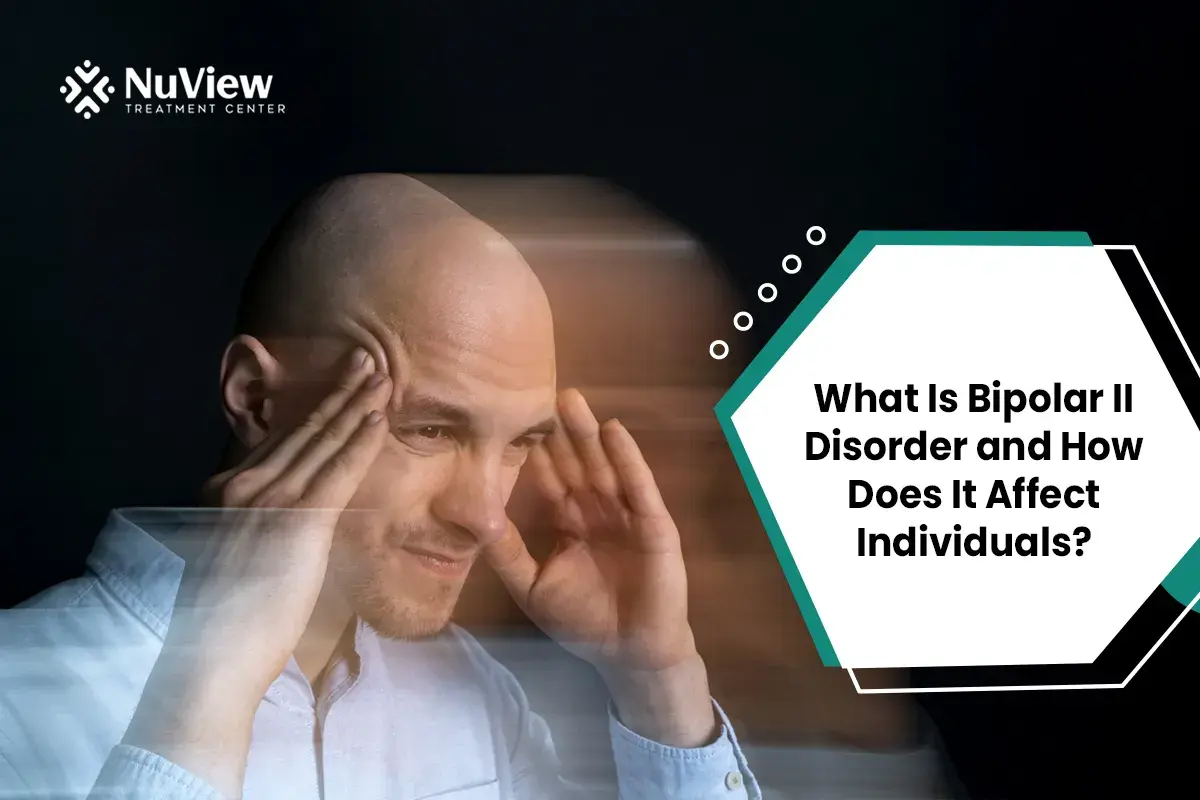

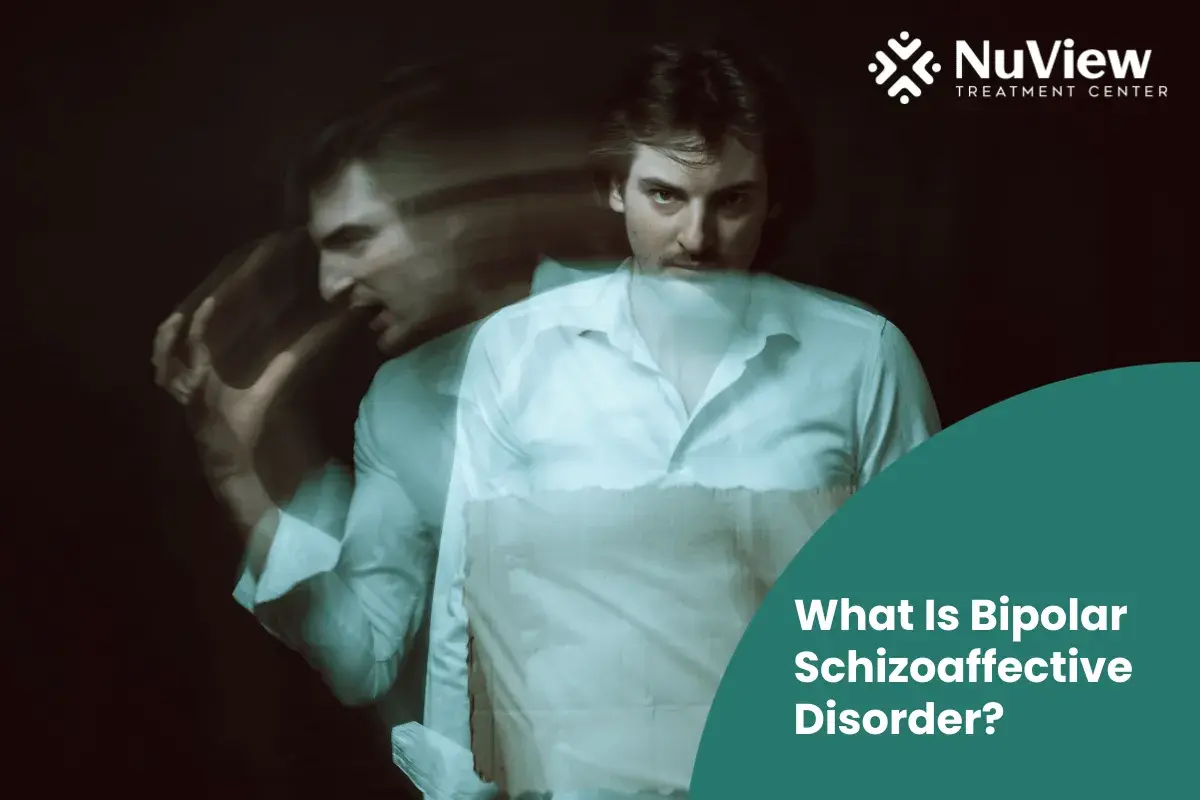
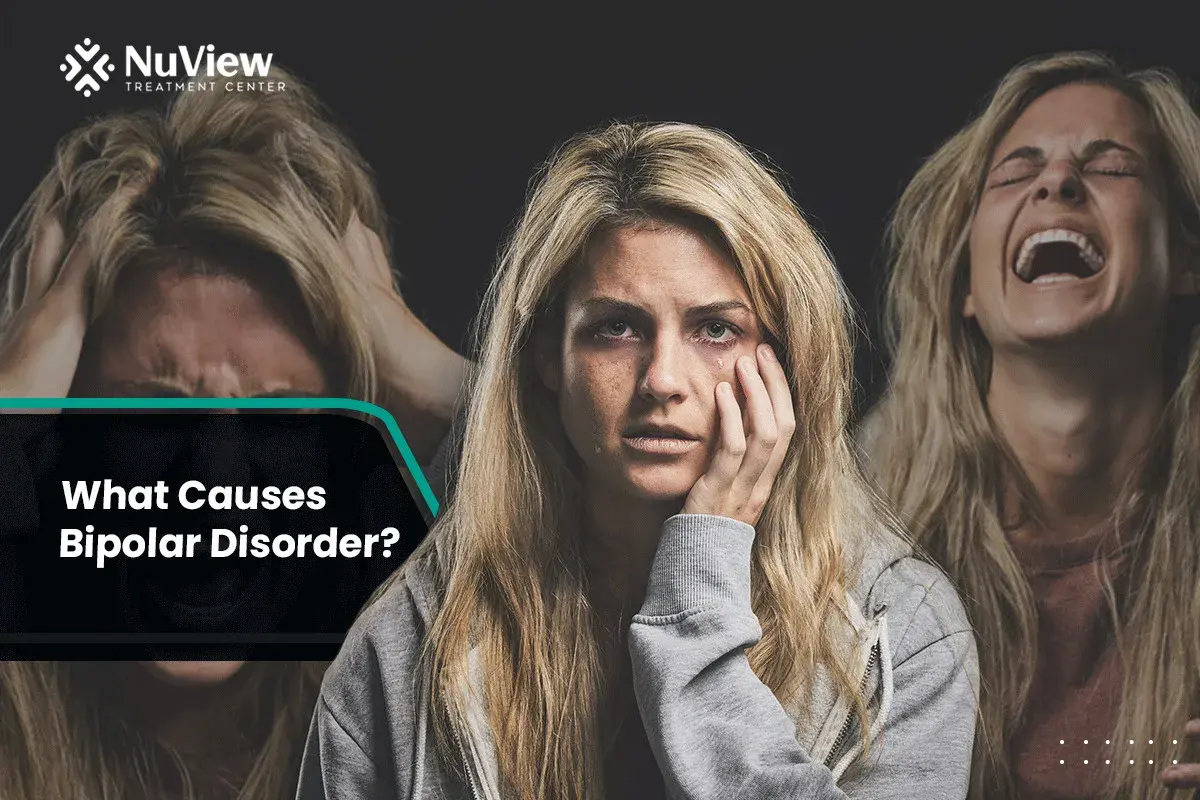



Written By
Dr. Ryan Peterson